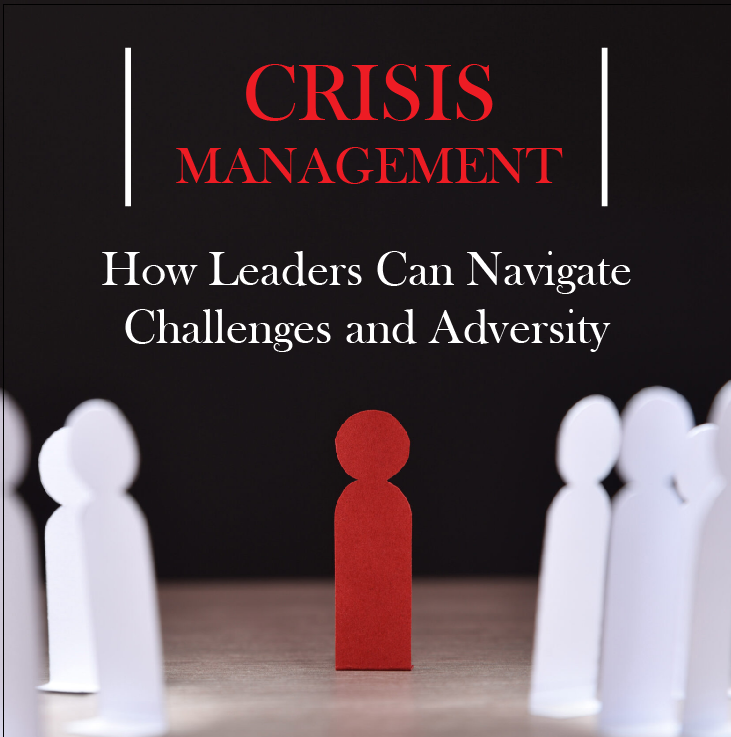Navigating crises and challenges are the most significant tests of leadership. Whether it’s an economic downturn, a sudden organizational change, or a public relations disaster, how leaders manage these challenges can define their legacy. Crisis management is a critical component in leadership development books, and it’s an area where transformational leadership truly shines.
What is Crisis Management?
Crisis management involves identifying, assessing, understanding, and mitigating the impact of an unexpected event or series of events. It’s about being prepared, staying calm, and taking decisive action. A crisis can threaten the very foundation of an organization, making it essential for leaders to have a clear plan and the ability to inspire confidence and resilience in their teams. Leadership books often emphasize the importance of being proactive rather than reactive. This approach involves anticipating potential crises and having strategies in place to address them. Transformational leadership books, in particular, highlight the need for leaders to inspire and motivate their teams during these challenging times, turning adversity into an opportunity for growth.
The Importance of Good Leadership in Crisis Management
Leadership development books such as “Bucket Leadership” by Darry Stacy consistently underline that the true test of a leader is not how they perform when things are going well, but how they navigate through crises. In times of difficulties, leaders must be the anchor that keeps the organization grounded. This involves clear communication, maintaining a level head, and making tough decisions when necessary.
Leaders must be transparent with their teams, providing them with the information they need to stay informed and focused. This transparency helps to build trust and ensures that everyone is aligned in their efforts to manage the crisis.
Strategies for Effective Crisis Management
- Crisis management begins long before a crisis occurs. Leaders should work with their teams to identify potential risks and develop contingency plans.
- When a crisis occurs, time is of the essence. Leaders must be able to quickly assess the situation, make informed decisions, and take immediate action.
- Leaders must keep their teams informed, providing regular updates and clear instructions. It’s also important to communicate with external stakeholders, such as customers, investors, and the media, to manage the organization’s reputation.
- Leaders should show empathy and provide support to their teams, recognizing the emotional impact of the crisis and offering resources to help them cope.
- In a crisis, the situation can change rapidly. Leaders must be able to adapt their strategies and be flexible in their approach. This might involve changing plans, reallocating resources, or making difficult decisions to keep the organization on track.
Leadership Development in Crisis Management: What Do The Books Teach?
Leadership development books often stress the importance of building leadership skills before a crisis occurs. By investing in leadership development, organizations can ensure that their leaders are equipped to handle whatever challenges come their way.
Books like “Bucket Leadership” on leadership and management also highlight the need for leaders to be lifelong learners. In the fast-paced world of business, the landscape is constantly changing, and leaders must be able to adapt. This involves staying up-to-date with the latest trends and best practices in crisis management and continuously seeking opportunities to improve their skills.
Transformational Leadership in Crisis
Transformational leadership is particularly effective in times of crisis. Transformational leaders inspire and motivate their teams to go above and beyond, even in the face of adversity. They are able to see the bigger picture and turn challenges into opportunities for growth and innovation. These leaders are able to keep their teams focused on the end goal, even when the path is uncertain. They foster a culture of trust and collaboration, ensuring that everyone is working together to overcome the crisis.
Conclusion
Crisis management is an essential skill for any leader. Leadership books provide valuable insights and strategies for developing these skills, helping leaders to turn crises into opportunities for growth and success. For those looking to enhance their leadership capabilities, exploring leadership development books and transformational leadership books can provide the tools and inspiration needed to lead effectively in times of crisis. These resources not only offer practical advice but also inspire leaders to embrace challenges as opportunities for personal and organizational growth.



